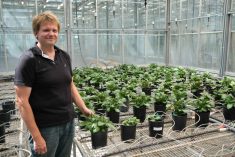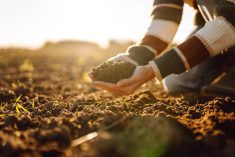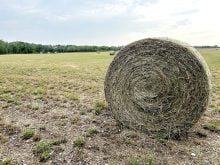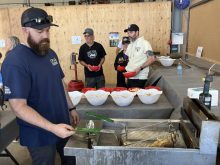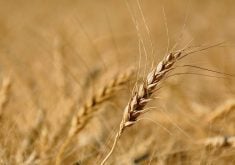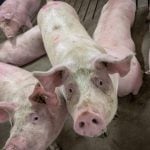Nations need to speed up the sharing of genetic material from crops if the world is to have any chance of feeding itself in a future with more extreme droughts, floods and storms, a senior UN official said.
Scientists say new varieties of wheat, rice, corn and other staples will be needed to cope with rising temperatures, greater extremes of rainfall and diseases in coming decades caused by global warming.
The challenge is all the more great because of a growing human population and shrinking amount of land for agriculture, with the UN Food and Agriculture Organization saying the world must double food production by 2050.
Read Also
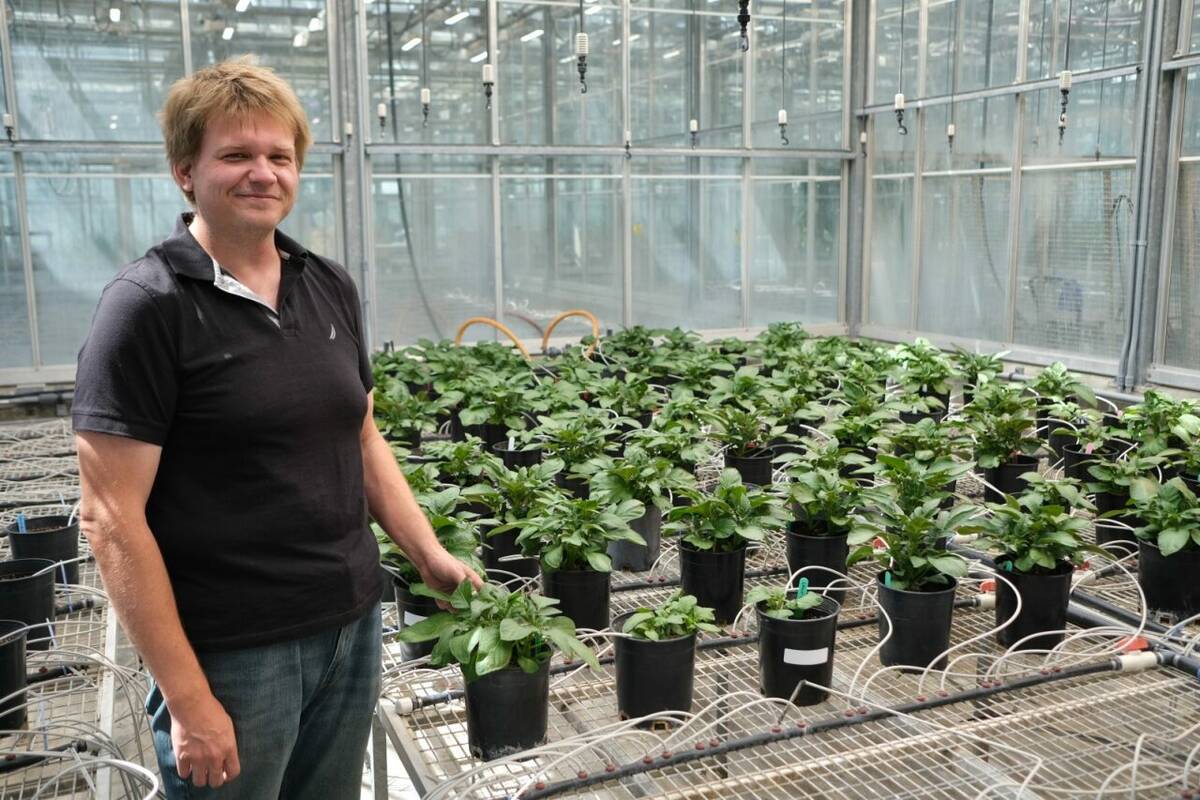
Hail research hopes to benefit potato growers
Alberta research scientist measures hail storm and heat dome affects on potato crops
“It’s completely a race against time and it’s race that we’re losing unless we act rapidly,” said Shakeel Bhatti, secretary of the governing body for the International Treaty on Plant Genetic Resources for Food and Agriculture.
“The risks are if these crops are not adapted, we’re going to see a further acceleration of the loss of plant genetic diversity, which really is the basis for us to adapt, so it’s a kind of vicious cycle,” he told Reuters from the Indonesian island of Bali.
Food prices hit a record high last month, when the FAO’s Food Price Index reached a second straight record driven by rising grain costs and tighter supply to further pass peaks seen in 2008.
High food prices that year sparked riots in several countries and rising prices were again blamed for partly fuelling unrest that toppled leaders in Tunisia and Egypt in recent weeks.
Ministers and senior officials from nearly 50 countries meeting in Bali adopted a declaration backing the role of the treaty in protecting the planet’s animal and plant species, boosting food security and fighting climate change.
Bhatti said he hoped the meeting in Bali would win agreement from more nations to share crop gene collections and boost funding for a regulated system of exchanging that material between governments, universities, NGOs and other groups.
Nearly 130 nations have signed the treaty, which came into force in 2004, and 1.5 million samples of the world’s 64 most important crops have been gathered in a gene pool regulated under the pact. Hundreds of samples are exchanged daily under the treaty but this still needs to increase, Bhatti said.
He said no country had the crop diversity within its borders to meet future food needs.
Risks
Developing countries were particularly at risk, including sub- Saharan Africa, South Asia, parts of Latin America as well as southern Europe, he added.
He said risks from a warmer world included further loss of harvests, existing varieties becoming non-viable because they were no longer able to cope with rising temperatures or longer droughts, leading to further hikes in food prices and poverty.
Bhatti said it was crucial to find and share genetic material from crop varieties found on farms and crop wild relatives, and less so the material collected 50 years ago and stored in gene banks.
“It’s that material that is out in the field and on farm that is most promising in finding climate-adaptation traits,” he said, such as crops already facing a changing climate, migrating pests, or funguses that are spreading because of warmer weather.
The treaty’s secretariat, which comes under the FAO, has already fund programs to help developing countries adapt crops to climate change, such as potatoes in Peru, cassava in India and beans and maize in Cuba.
But funds are voluntary until the treaty’s benefit-sharing fund, based on a 1.1 per cent levy on revenue generated by patented varieties and other products, builds up enough cash.


